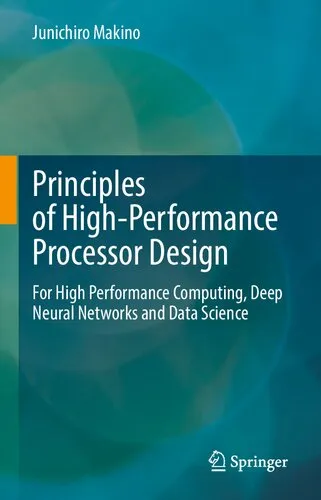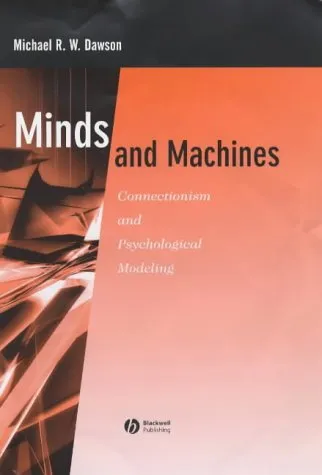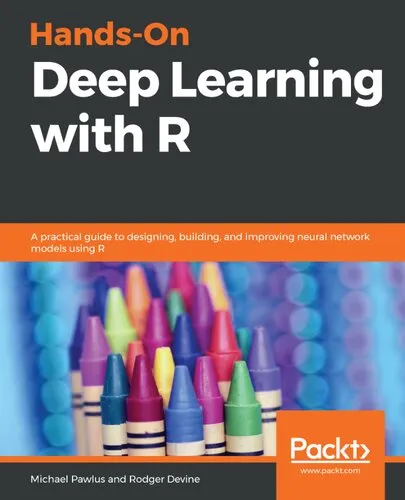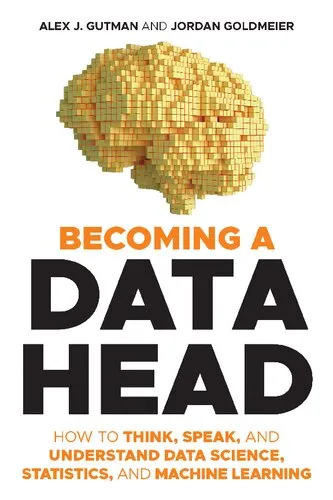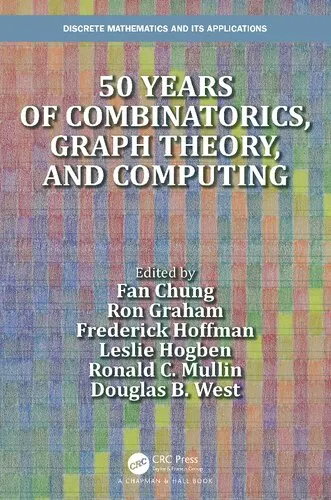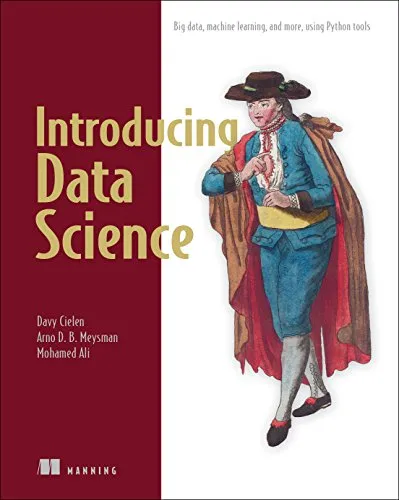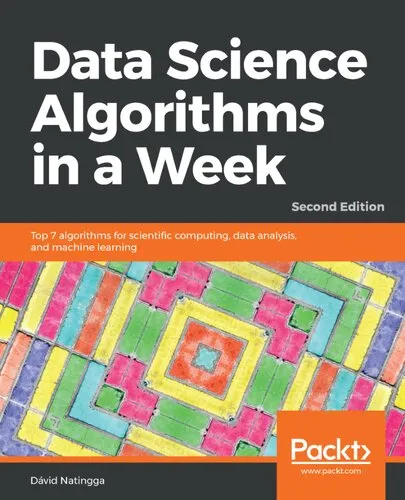Principles of High-Performance Processor Design: For High Performance Computing, Deep Neural Networks and Data Science
4.4
بر اساس نظر کاربران

شما میتونید سوالاتتون در باره کتاب رو از هوش مصنوعیش بعد از ورود بپرسید
هر دانلود یا پرسش از هوش مصنوعی 2 امتیاز لازم دارد، برای بدست آوردن امتیاز رایگان، به صفحه ی راهنمای امتیازات سر بزنید و یک سری کار ارزشمند انجام بدینکتاب های مرتبط:
مقدمهای بر کتاب 'Principles of High-Performance Processor Design'
'Principles of High-Performance Processor Design: For High Performance Computing, Deep Neural Networks and Data Science' به قلم جونچیرو ماکینو کتابی جامع و مرجع برای علاقهمندان و متخصصان حوزه پردازندههای با عملکرد بالا میباشد. این کتاب به بررسی اصول طراحی و بهینهسازی پردازندههای پیشرفته میپردازد که اهمیت ویژهای در محاسبات سطح بالا، شبکههای عصبی عمیق و علوم داده دارند.
خلاصه جامع کتاب
این کتاب با ارائه مباحثی در زمینههای معماری پردازنده، طراحی سختافزار و بهینهسازی نرمافزار، مطالعهای فراگیر در خصوص تولید و توسعه پردازندههای با کارایی بالا ارائه میدهد. در ابتدا، نویسنده به بررسی مفاهیم بنیادی و تاریخچه توسعه پردازندهها میپردازد که زمینهساز درک عمیقتری از این فناوریها میشود. سپس، به تحلیل معماریهای مدرن و تکنیکهای نوین پردازش که توانایی انجام عملیات پیچیده را با سرعت بالا دارند، پرداخته میشود.
فصلهای بعدی کتاب شامل بررسی مواردی همچون بهینهسازی حافظه، مدیریت نیروی مصرفی، و استراتژیهای کاهش تأخیر است که در نهایت منجر به افزایش کارایی کلی سیستمهای پردازشی میشوند. بحث و بررسی در مورد رویکردهای نوین و زمانبندیهای جدید برای پردازندهها بخش دیگری از این کتاب است که میتواند به توسعهدهندگان و محققان کمک شایانی کند.
نکات کلیدی
- درک عمیق از اصول طراحی پردازندههای با عملکرد بالا.
- تکنیکهای پیشرفته مدیریت حافظه و کاهش تأخیر.
- راهبردهای بهینهسازی انرژی مصرفی پردازنده.
- استفاده از طراحیهای ابتکاری برای دستیابی به سریعترین پردازشها.
جملات مشهوری از کتاب
"توانمندیهای پردازندهها در دنیای امروز ناظر بر اندیشههای نوآورانه و تکنیکهای بهینهسازی مدرن است."
"تسخیر قدرت پردازش در حال حاضر نیازمند بهرهگیری از ساختارهای معماری کاملاً بهینه و استراتژیهای بهبود یافته است."
اهمیت این کتاب
با پیشرفتهای سریع علم و فناوری، طراحی پردازندههای با کارایی بالا به یکی از نیازهای اساسی در توسعه نرمافزارهای پیشرفته و کاربردهای محاسباتی پیچیده تبدیل شده است. این کتاب بهعنوان منبعی غنی و کاربردی، اطلاعات لازم را برای طراحی و بهینهسازی پردازندههای نوین ارائه میکند و میتواند برای محققان، مهندسان و دانشجویان رشتههای مرتبط بهعنوان راهنمایی جامع مورد استفاده قرار گیرد. توانمندسازی در حوزههای محاسباتی و علمی، اهمیت این کتاب را دوچندان میکند.
با ارائه جزئیات دقیق و مثالهای عملی، این کتاب به خوانندگان کمک میکند تا فناوریها و تکنیکهای جدید را بهتر درک کرده و در فعالیتهای خود به کار گیرند. این امر نه تنها به پیشبرد مرزهای علم کمک میکند، بلکه موجب ارتقای کیفی پروژههای علمی و مهندسی نیز میگردد.
Introduction
Welcome to "Principles of High-Performance Processor Design: For High Performance Computing, Deep Neural Networks and Data Science." This book delves into the cutting-edge principles and methodologies that are revolutionizing the world of processor design, with a focus on accelerating computational power to meet the demands of modern-day applications. Whether you are a seasoned professional, a budding data scientist, or an enthusiast in deep neural networks, this book offers a comprehensive insight into the world of high-performance computing architecture.
Detailed Summary of the Book
The book spans a wide array of topics crucial for understanding and implementing high-performance processors. Starting with the fundamental concepts of processor architecture, it lays down the foundational knowledge necessary for more advanced discussions. The chapters progress into more complex themes such as multi-core and many-core architectures, memory hierarchies, and parallel processing strategies, each explained with clarity and depth.
Special emphasis is placed on the application of these designs in high-performance computing (HPC), deep learning, and data science—domains where the speed and efficiency of processors can significantly impact outcomes. With detailed explanations of real-world case studies and architectures like Tensor Processing Units (TPUs), Graphics Processing Units (GPUs), and Field-Programmable Gate Arrays (FPGAs), this book bridges the gap between theory and practical application.
Key Takeaways
- Understand the core principles behind processor architecture and design.
- Learn the intricacies involved in designing processors for deep neural networks.
- Explore how high-performance computing is reshaped through modern processors.
- Gain insights into technologies like TPUs, GPUs, and FPGAs tailored for specific computational tasks.
- Develop an informed perspective on future trends in processor design.
Famous Quotes from the Book
"The pursuit of high-performance computing is as much about pushing technological boundaries as it is about understanding the evolving needs of computation-intensive applications."
"Efficiency in processor design is not just a quest for speed; it's an art form, balancing power consumption, scalability, and intelligence."
Why This Book Matters
As the digital age continues to surge forward, there is an ever-increasing demand for processors that can handle complex calculations at lightning speeds. This book matters because it equips readers with the knowledge to design and evaluate processors that are optimized for the future's biggest computational challenges. With data science and artificial intelligence (AI) forming the backbone of numerous industries, understanding processor design is pivotal.
Moreover, the book serves as a guide for anyone interested in the dynamic field of processor technology. By elucidating the principles that drive high-performance architectures, it not only facilitates academic and professional learning but also inspires innovative thinking, encouraging readers to contribute to the next wave of groundbreaking technologies.
دانلود رایگان مستقیم
شما میتونید سوالاتتون در باره کتاب رو از هوش مصنوعیش بعد از ورود بپرسید
دسترسی به کتابها از طریق پلتفرمهای قانونی و کتابخانههای عمومی نه تنها از حقوق نویسندگان و ناشران حمایت میکند، بلکه به پایداری فرهنگ کتابخوانی نیز کمک میرساند. پیش از دانلود، لحظهای به بررسی این گزینهها فکر کنید.
این کتاب رو در پلتفرم های دیگه ببینید
WorldCat به شما کمک میکنه تا کتاب ها رو در کتابخانه های سراسر دنیا پیدا کنید
امتیازها، نظرات تخصصی و صحبت ها درباره کتاب را در Goodreads ببینید
کتابهای کمیاب یا دست دوم را در AbeBooks پیدا کنید و بخرید
1391
بازدید4.4
امتیاز0
نظر98%
رضایتنظرات:
4.4
بر اساس 0 نظر کاربران
Questions & Answers
Ask questions about this book or help others by answering
No questions yet. Be the first to ask!
